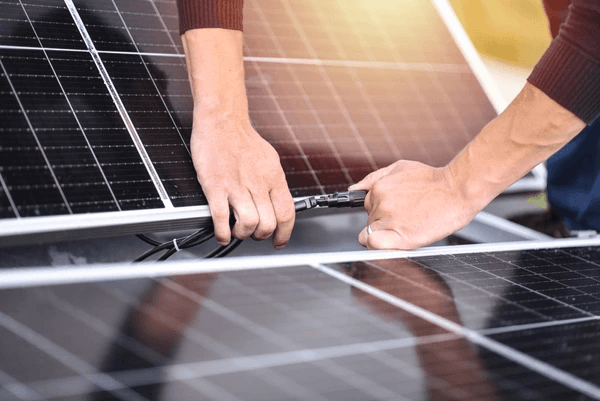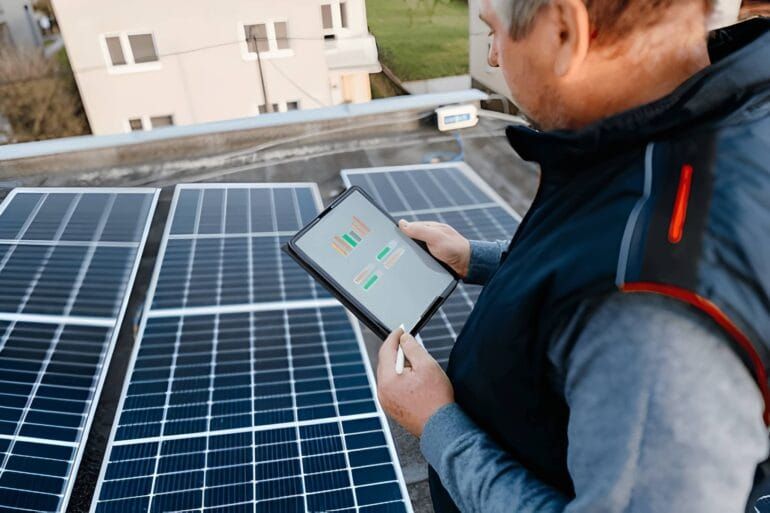Switching from gas to induction is not only better for the environment, but also has many other benefits. Here are 10 benefits of switching to induction in 2023:
1. Induction is more efficient than gas, so you’ll Save money on your energy bill.
2. Induction cooktops heat up faster than gas, so you can save time in the kitchen.
3. Induction cooktops are easier to clean than gas, so you’ll save time and effort.
4. Induction cooktops are safer than gas, so you can cook with peace of mind.
5. Induction cooktops are more portable than gas, so you can take them with you when you travel.
6. Induction cooktops are more versatile than gas, so you can cook anything you want.
7. Induction cooktops are more stylish than gas, so your kitchen will look great.
8. Induction cooktops are more environmentally friendly than gas, so you can cook with a clear conscience.
9. Induction cooktops are more durable than gas, so you can enjoy them for many years to come.
10. Induction
1. Gas vs induction – which is more efficient?
If you’re considering switching from gas to induction, Then this ongoing debate of gas vs induction ranges from environmental benefits to the effect on your monthly utility bills. You can also reduce your monthly utility bills by using a solar system.
Here is a break-down of the pros and cons to help you make an informed decision:
Gas emits carbon dioxide (CO2) when burned, which is a major contributor to climate change and global warming.
Although natural gas is a cleaner burning fossil fuel than coal or oil, it’s still a fossil fuel.
That means when it’s burned, it emits greenhouse gases, including CO2, into the atmosphere.
On the other hand, induction cooktops don’t release any pollutants into the air. Instead, they use an electromagnetic field to generate heat directly in the pan, so there’s no wasted energy.
That makes them more than 90% efficient, compared to gas cooktops, which are only about 60% efficient.
In terms of cost, it depends on the price of natural gas in your area. In some places, natural gas is quite cheap. But in others, it can be more expensive than electricity.
Some people worry about electromagnetic fields (EMFs) from induction cooktops.
EMFs are invisible areas of energy, often referred to as radiation, that are emitted from electrical devices.
However, the EMFs from induction cooktops are low and pose no known health risks, according to the World Health Organization.
So, which is more efficient? Gas or induction? The answer may vary depending on your individual needs and situation.
But if you’re concerned about the environment and want to save money on your utility bills, induction is the way to go.
2. The impact of gas on our health
The use of natural gas and solar system in our homes and businesses has long been considered a healthier and more environmentally-friendly option than other fossil fuels like coal and oil.
 But recent research has shown that burning gas may not be as clean as we thought, and may in fact have serious consequences for our health.
But recent research has shown that burning gas may not be as clean as we thought, and may in fact have serious consequences for our health.
A growing body of evidence suggests that gas is a major source of harmful air pollutants, including particulate matter, nitrogen dioxide, and carbon monoxide.
These pollutants have been linked to a range of respiratory and cardiovascular health problems, including asthma, bronchitis, heart disease, and strokes.
In addition, gas combustion emits high levels of radiation, which can penetrate deep into our bodies and damage our DNA. This increases our risk of developing cancer.
So why are we still using gas? Part of the reason is that it’s cheap and abundant.
But as the evidence of its harmful effects mounts, we need to reconsider our reliance on this fossil fuel.
Switching from gas to electric induction cooktops is one way to help protect our health from the harmful effects of gas combustion.
Induction cooktops work by using magnetic fields to generate heat, so there is no combustion and no emissions. This makes them a much cleaner and safer option for cooking.
There are other benefits of switching to induction cooktops as well. They are more energy-efficient than gas cooktops, so you’ll save money on your energy bills.
They also heat up food faster, so you can save time in the kitchen.
If you’re considering switching to an induction cooktop, there are a few things to keep in mind.
Induction cooktops require cookware that is made of ferrous metal like cast iron or stainless steel. They also require a power source of at least 240 volts.
Despite these few considerations, the benefits of induction cooktops outweigh the drawbacks.
If you’re looking for a healthier and more environmentally-friendly option for cooking, induction is the way to go.
3. Gas vs induction: Which cooks better?
When it comes to deciding between gas and induction, it’s important to think about what you value most in a cooking experience.

If you prioritize speed, then induction is the way to go. If you prefer the consistent heat of gas or the ability to control the heat with precision, then gas is a better option.
Here, we’ll take a closer look at how these two methods differ when it comes to cooking times, energy efficiency, and costs.
When it comes to speed, induction is the clear winner. Induction cooktops can heat up cookware faster than gas or electric stovetops.
In fact, induction can be up to 50% faster than gas and 70% faster than electricity.
If you’re someone who likes to save time in the kitchen, then induction is a great option.
Not only will your food cook faster, but you’ll also save time on cleanup since induction cooktops cool down more quickly than gas or electric.
When it comes to energy efficiency, both gas, and induction have their advantages. Gas is typically more energy-efficient than electricity, but induction is more energy-efficient than gas.
In fact, induction cooktops can be up to 85% more energy-efficient than gas and 50% more energy-efficient than electric.
So, if you’re looking for an energy-efficient cooking option, induction is the way to go. Not only will you save energy, but you’ll also save money on your energy bills.
As for costs, gas is typically cheaper than induction. The initial cost of an induction cooktop can be higher than a gas cooktop, but induction cooktops last longer, so you’ll save money in the long run.
If you’re looking for a more affordable option up front, gas is the way to go. But if you’re looking for a long-term investment, induction is the better option.
when it comes to gas vs induction, there is no clear winner. it depends on what you value most in a cooking experience.
if you prioritize speed, then induction is the way to go. if you prefer the consistent heat of gas or the ability to control the heat with precision, then gas is a better option.
4. Induction is easier to clean
If you’re like most people, your kitchen is the heart of your home. It’s where you cook, eat, entertain, and maybe even do some work.
So, it’s no surprise that you want it to be as clean and comfortable as possible.
One of the biggest complaints people have about their kitchens is how hard it is to keep the stovetop clean. Between spills, splatters, and drips, it can be a challenge to keep gas or electric cooktops looking their best.
Induction cooktops offer a major advantage in the ease of cleaning.
Since there is no direct contact between the cooking surface and the food, there is far less cleanup required.
spills and splatters can be easily wiped away without having to worry about scrubbing burned-on food.
In addition, induction cooktops don’t produce the same level of heat as a gas or electric cooktops.
This means that there is less of a chance of food sticking to the surface and burning.
If you’re someone who hates spending time cleaning your stovetop, then induction is the way to go. You’ll be able to enjoy your kitchen more and spend less time scrubbing.
5. Is your cookware compatible with induction?
Switching from Gas to Induction requires careful consideration of your cookware. When you switch to induction cooking, one of the first things you need to consider is whether your cookware is compatible.
 Not all cookware will work with induction, so it’s important to do your research before making the switch.
Not all cookware will work with induction, so it’s important to do your research before making the switch.
Here are five things you need to know about induction cookware compatibility:
1. Induction cooktops use a magnetic field to generate heat, so your cookware must be made of ferrous material.
This means that most aluminum, copper, glass, and ceramic cookware will not work with induction.
2. If your cookware has a smooth bottom, it is more likely to be compatible with induction.
This is because the magnetic field needs to be able to make contact with the entire bottom of the cookware in order to generate heat.
3. If your cookware is compatible with induction, you will need to use a cookware adapter. This is a kit that allows you to use your existing cookware on an induction cooktop.
4. Not all induction cooktops are created equal. Some induction cooktops are more powerful than others, so it’s important to check the compatibility of your cookware with the specific induction cooktop you’re using.
5. Induction cookware is often more expensive than other types of cookware. This is because it is made of higher-quality materials and is designed to work with induction cooktops.
6. Portable induction cooktops may be a cheaper workaround In 2023, there may be an increased demand for portable induction cooktops as people look for ways to save money on gas.
Here are six benefits of using a portable induction cooktop:
1. Portable induction cooktops are more energy-efficient than gas stoves, so you’ll save money on your energy bill.
2. They’re also safer to use since there’s no risk of gas leaks or fires.
3. Portable induction cooktops are easy to use, and you can control the heat with precision.
4. They’re compact and easy to store, so you won’t have to worry about taking up too much space in your kitchen.
5. You can take your portable induction cooktop with you when you travel, so you’ll always have a way to cook your meals.
6. Portable induction cooktops are a great way to save money on gas, and they offer all the benefits of using induction cooking.
7. Installation considerations
There are a few considerations to take into account when thinking about switching from gas to induction cooktops. Cost is always a consideration with any home improvement, and the price of induction cooktops has come down in recent years.
But, there are still some things to think about before making the switch. Functionality is important to consider. If you have a gas cooktop, you may be used to the way it works. Induction cooktops work a little differently.
They use electromagnetic energy to heat the cookware, so the cooktop itself doesn’t get hot. This can take some getting used to.
Ease of use is another important consideration. If you have young children, you may want to consider whether an induction cooktop is the right choice for your family.
They can be safer than gas cooktops, but they do require a little bit more care and attention.
Finally, think about the look of your kitchen. If you have a modern kitchen, an induction cooktop may be a good choice to complement your decor.
But, if you have a more traditional kitchen, you may want to stick with a gas cooktop. These are just a few things to think about before you make the switch from gas to induction.
Talk to a professional to get more advice and make sure you choose the cooktop that’s right for your family and your kitchen.
The article discusses the benefits of switching from gas to induction in 2023. The benefits include:
1. Reduced emissions
2. Reduced maintenance
3. Increased efficiency
4. Increased safety
5. Reduced costs
Overall, the benefits of switching from gas to induction in 2023 outweigh the costs. The switch will lead to reduced emissions, increased efficiency, and increased safety.







